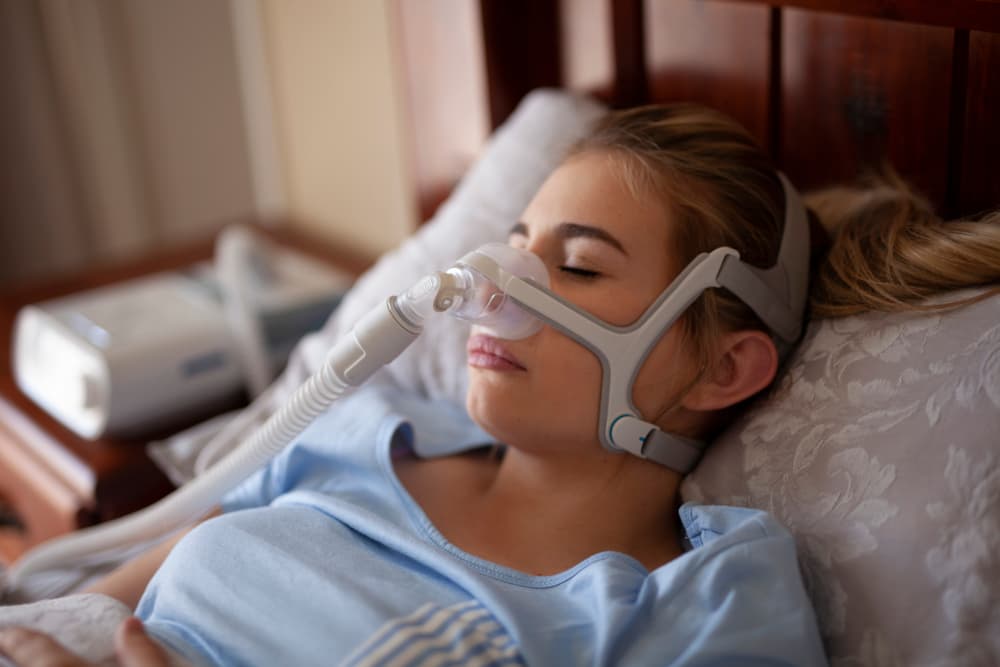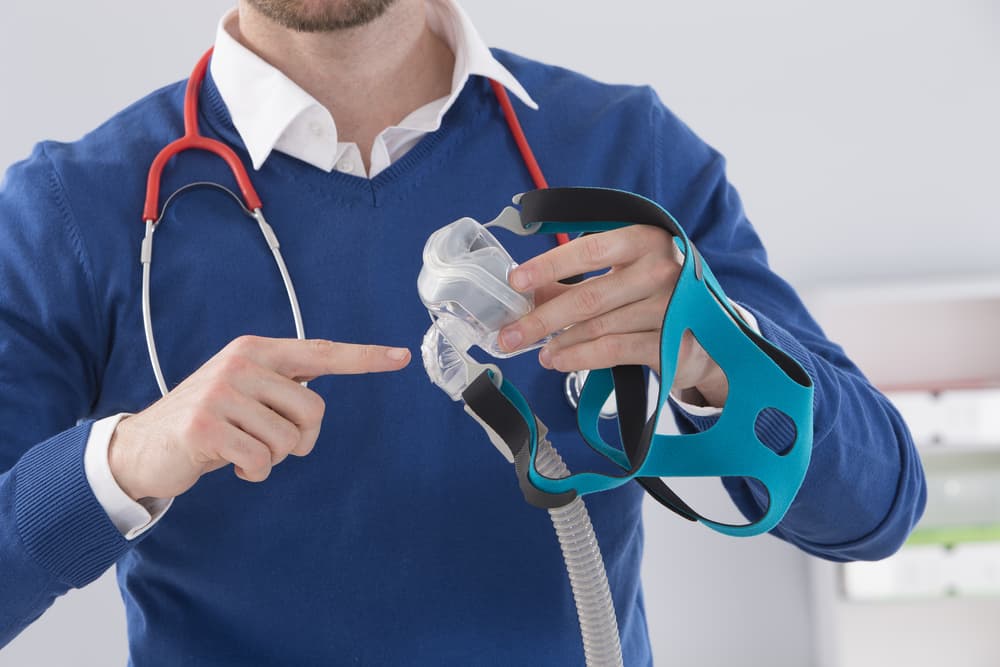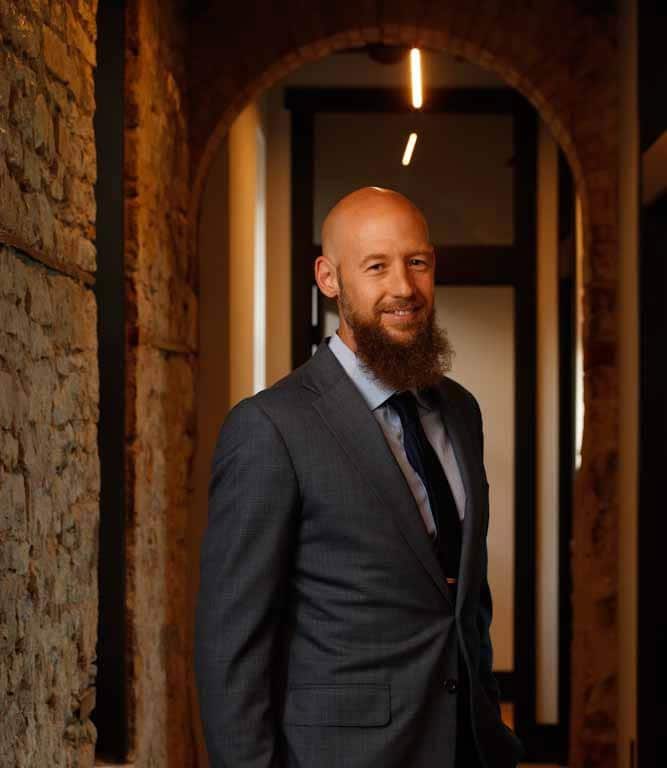Continuous positive airway pressure (CPAP) is a common treatment for obstructive sleep apnea. It involves a CPAP machine that uses a hose connected to a mask to deliver constant and steady air pressure while the sufferer sleeps.
Unfortunately, Philips’s popular brand of CPAP machine has been the subject of a recall after its use was linked to cancer and other respiratory disorders. Individuals across the U.S. are now filing claims seeking compensation from the manufacturer.
If you used a Philips CPAP machine and became ill with a respiratory disorder, an experienced Wisconsin CPAP lawsuit lawyer from Nicolet Law Accident & Injury Lawyers can seek compensation for you.
What Risks Do Philips CPAP Machines Pose?

According to the U.S. Food and Drug Administration (FDA)—the federal agency tasked with overseeing the safety of certain types of products used by consumers in the U.S., such as foods, medicines, and medical devices—Philips Respironics recalled some of its CPAP, BiPAP, and ventilators in June 2021, due to potential health risks. These risks result from the polyester-based polyurethane foam used in the machines to reduce sound and vibration breaking down. This results in microscopic foam particles and chemicals being ingested or inhaled by the machine user.
The recall included several of the machines that Philips has produced between 2009 and April 2021, including the following models:
- A-Series BiPAP A30
- A-Series BiPAP A40 (ventilator)
- A-Series BiPAP Hybrid A30
- A-Series BiPAP V30 Auto (ventilator)
- C-Series ASV (ventilator)
- C-Series S/T and AVAPS
- DreamStation
- DreamStation ASV
- DreamStation Go
- DreamStation ST, AVAPS
- Dorma 400
- Dorma 500
- E30
- Garbin Plus, Aeris, LifeVent (ventilator)
- OmniLab Advanced+
- REMstar SE Auto
- SystemOne ASV4
- SystemOne (Q-Series)
- Trilogy 100 (ventilator)
- Trilogy 200 (ventilator)
The FDA issued a Class 1 recall on the devices, the most serious type of recall. The device has posed a significant risk of injury or death. According to a report from the American Association of Retired Persons (AARP), within the first three months after the recall of the products was issued, the FDA received about 1,200 complaints and reports of around 100 injuries from the defect.
The recall affected an estimated three to four million devices globally, with about half of those devices in the U.S.
The Types of Injuries Associated with the Recalled CPAP Machines
The breakdown of the foam causes particles to travel through the hose unseen.
These particles are then breathed or ingested by the sleeping user and can result in conditions such as:
- Irritation to the eyes, nose, airway, or skin.
- Inflammation of the airway.
- Headache.
- Asthma.
- Cancer-causing effects on the internal organs
Additionally, breathing in the chemicals released due to the breakdown of the foam can lead to immune system reactions, nausea, and vomiting.
Currently, personal injury lawyers are considering potential claims for clients suffering from diagnosed conditions, including:
- Cancer of the bladder, liver, lung, nose, testicles, and lymph cancers such as multiple myeloma and leukemia
Some factors believed to increase the risk of injury due to CPAP foam inhalation or ingestion include heat and humidity, which can hasten the foam's degradation, and unapproved methods to clean the machine, including ozone cleaners and products using UV light.
What to Do if Philips Recalled Your CPAP Machine
At the time of the Philips recall, the FDA ordered the company to inform consumers of the issue and provide repair and replacement of defective machines. Months later, the agency again urged the company to inform consumers of the recall.
Those affected must:
- Talk to your health care provider about whether you should stop using the machine.
- Follow Philips Respironics’ instructions for properly cleaning the device if you continue using it, being sure not to use ozone or UV light cleaning products that can quicken the degradation of the foam.
- Register your device on Philips’s website so you can receive a replacement product. Individuals who have already registered and need priority status for receiving their replacement can provide additional information on the website.
- Do not use a filter on your device or attempt to remove the foam from the device. This may impact how the machine works or result in foam particles falling into the hose where they can be inhaled or ingested.
- If you incurred a health issue that you suspect is connected to the use of your CPAP machine, speak with an experienced Wisconsin CPAP lawsuit lawyer who can evaluate your case and provide guidance about the process of seeking compensation for your injury.
Seeking Compensation for Injuries Caused by Your Philips CPAP Machine

Through product liability laws in the U.S., manufacturers are responsible for ensuring that their products are reasonably safe for consumers when used according to packaging instructions.
Three types of product defects can result in a product liability claim, including:
- Design defects, such as the Philips CPAP issue, result from an error made when engineering the product. The CPAP machines used foam to cut down on noise and vibration from the machine. The foam, independent of a manufacturing process, was found to break down through normal product use. Design defects affect the entire product line, as they were all manufactured using the same design.
- Manufacturing defects, which occur due to production errors. Common manufacturing defects resulting in product liability claims would include recalls on food products containing pieces of glass that were not part of the design but rather taint the product in a manufacturing mishap. Manufacturing defects commonly affect a single lot of a product.
- Packaging defects involve the manufacturer’s failure to warn consumers of known risks of using the product or to include instructions that adequately explain the proper use of the product.
Individuals seeking compensation after incurring an injury due to a defective product can do so through the product liability claims process. In Wisconsin, individuals have three years from the date they were injured or discovered that they were injured by a product to file their claim.
Potentially Thousands (or Millions) of Claimants
When a product defect affects thousands or even millions of people, such as the Philips CPAP has, cases involving similar complaints against the same company often join into group litigation, such as multi-district litigation or class action.
- Class action cases involve a single lawsuit filed on behalf of a class (group) of injured people. To receive class consideration by a judge, the plaintiffs must show that requiring separate actions by class members will result in inconsistent rulings. They must also show that the class members' claims share common questions of law and fact, the claims and defenses of the class representatives are typical of those of the rest of the class, and the proposed class representatives would adequately protect the interests of the rest of the class. The process is smoother and quicker for the court and all parties involved. It presents some benefits to the class members, including sharing litigation costs.
- Multidistrict litigation (MCL) involves numerous claims from the same region that are factually similar and feature the same defendant joined together for the discovery phase of the trial to gather evidence and depose witnesses. After this phase, barring a settlement, the cases all return to their separate districts for individual trials.
The United States Judicial Panel on Multidistrict Litigation transferred class actions and personal injury claims related to the CPAP lawsuits to the United States District Court for the Western District of Pennsylvania. Other claims will likely move to this district.
How an Attorney Can Help You With Your Claim
These legal cases are complex enough that you need an attorney. Seeking compensation for injuries incurred due to a product defect is undoubtedly the claim where an attorney is necessary.
An experienced Wisconsin CPAP lawsuit attorney from Nicolet Law Accident & Injury Lawyers can:
- Evaluate your case to determine if you can file a claim against the manufacturer. Eligibility includes using one of the CPAP or ventilator machines listed above and the presence of a diagnosed condition associated with the use of these machines.
- Gather the evidence necessary to link your medical condition with the CPAP machine. This is particularly true if your case involves cancer, as cancers have a latency period. This is a period between exposure to a carcinogenic material such as the foam and chemicals causing the CPAP issue and the disease. Your attorney will work with medical professionals to compile documentation that shows a likely link between exposure and illness.
- Timely file your lawsuit in court and guide it through the process, including if it becomes part of a class action or an MDL.
- Estimate the value of your claim and what constitutes a fair settlement for the injuries you’ve suffered. Compensation in product defect claims involving personal injury often includes medical expenses, wage loss related to the injury, loss of future earning capacity, pain and suffering, and emotional distress.
- Litigate your claim. Suppose your case is part of the MDL in Pennsylvania. In that case, your attorney will work with the lead attorneys in those cases. When the case returns to Wisconsin, we will provide litigation services and settlement negotiations here.
- Collect your settlement or court award. Your Wisconsin CPAP lawsuit lawyer works on a contingent fee billing method. You never pay us unless we secure a positive outcome for you. When you obtain a settlement or a court award, the money is sent directly to your attorney, who deducts the percentage for their services that is outlined in your contingent fee agreement when they first begin working on your claim. Any additional expenses that your attorney agreed to pay upon receipt of your settlement or award, such as liens from health care providers or insurance providers, are also deducted. You receive the remainder of the compensation.
Did Your CPAP Injure You? We Can Help

Let an experienced Wisconsin CPAP lawsuit lawyer answer the questions you have about your case and help you determine your legal options for seeking compensation for your injury. For your free case evaluation, contact Nicolet Law Accident & Injury Lawyers online or call (715) 226-6149.
Client Testimonials
Review: 5/5
★ ★ ★ ★ ★
“They were great people to work with. Even after a year, I had something come up from a case and they were more than willing to help me out!”
Review by: Nicole B.
Check out some of our other reviews.